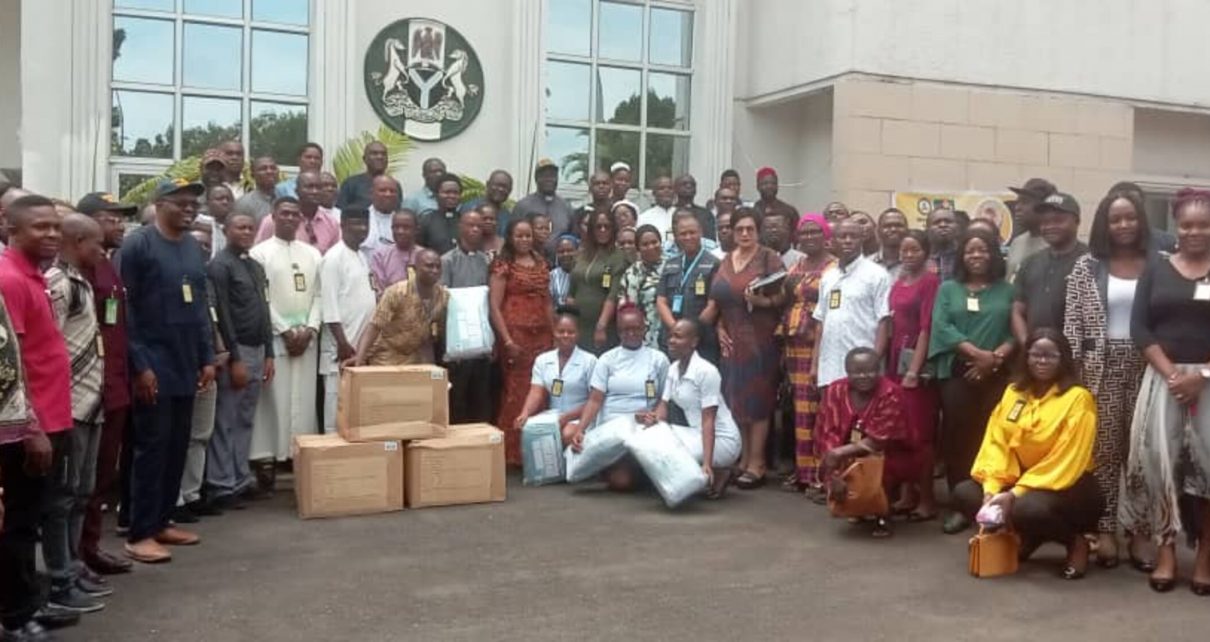In a significant move to combat maternal mortality caused by postpartum haemorrhage (PPH), Dr. Nonye Soludo, the wife of the Anambra State Governor, spearheaded the distribution of 120 anti-shock garments to hospitals in the state. This life-saving initiative aims to prevent fatal bleeding during childbirth and ensure safer deliveries throughout the region.
The procurement and distribution of these anti-shock garments were made possible through a collaborative effort between the Anambra State Ministry of Health and the Healthy Living with Nonye Soludo Initiative.
During the distribution event, held at mission hospitals and general hospitals across the state, Dr. Soludo highlighted the critical role of these garments in maternal healthcare. She emphasised that these garments can potentially sustain a woman experiencing heavy bleeding for up to 48 hours, thereby averting a life-threatening situation.
The alarming statistics presented during the maternal mortality review in the state revealed that a staggering 80 per cent of maternal deaths resulted from PPH, which refers to excessive bleeding during or immediately after childbirth. PPH has been a leading cause of mortality among women, making the distribution of anti-shock garments a pivotal step in addressing this crisis.
Dr. Soludo underlined the importance of these anti-shock garments as low-technology first aid devices that could be instrumental in saving lives. Many women, she explained, succumb to bleeding before receiving proper medical treatment. Without this intervention, they could perish within just 30 minutes. Dr. Soludo passionately stressed that these deaths are entirely preventable, and she urged healthcare professionals to utilize these garments effectively to reduce maternal mortality and ensure the safety of childbirth in Anambra.
Dr. Afam Obidike, the State’s Commissioner for Health, echoed the commitment of the state government to maintain the lowest maternal mortality rate in the country. He indicated that the next phase of distributing anti-shock garments would target all primary healthcare centres across the state. These garments serve as crucial tools for stabilising women experiencing obstetric bleeding and shock, enabling them to endure delays in reaching a medical facility and receiving essential treatment. Remarkably, this brand of anti-shock garment can be reused up to 144 times, amplifying its impact.
Dr. Obianuju Okoye, the State Reproductive Health Coordinator, disclosed plans for training healthcare workers to enhance their clinical proficiency in utilising these life-saving garments effectively.
Dr. Francis Ifeaneme, Secretary of the Nigerian Medical Association’s Anambra chapter, expressed gratitude on behalf of the beneficiary hospitals. He assured that these anti-shock garments would be used with the utmost dedication to save lives, ultimately fulfilling the goal of eradicating preventable maternal deaths in Anambra.


